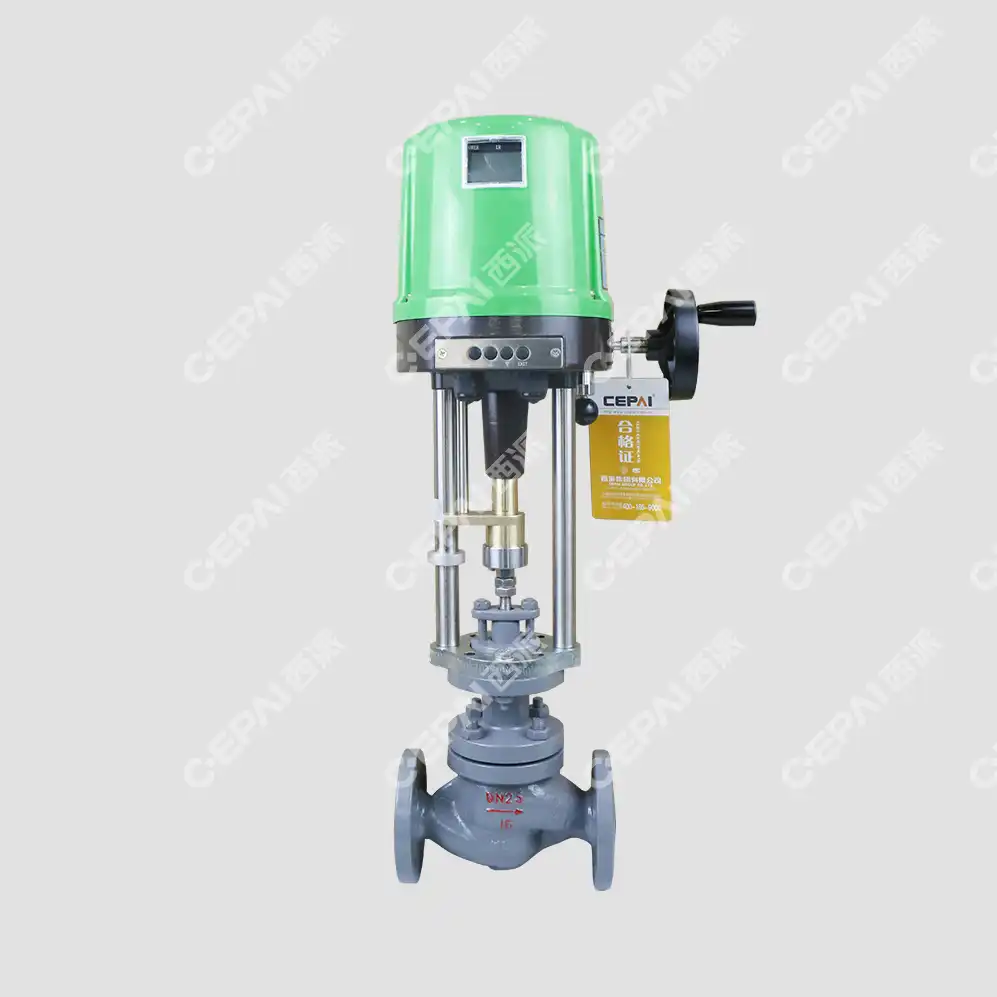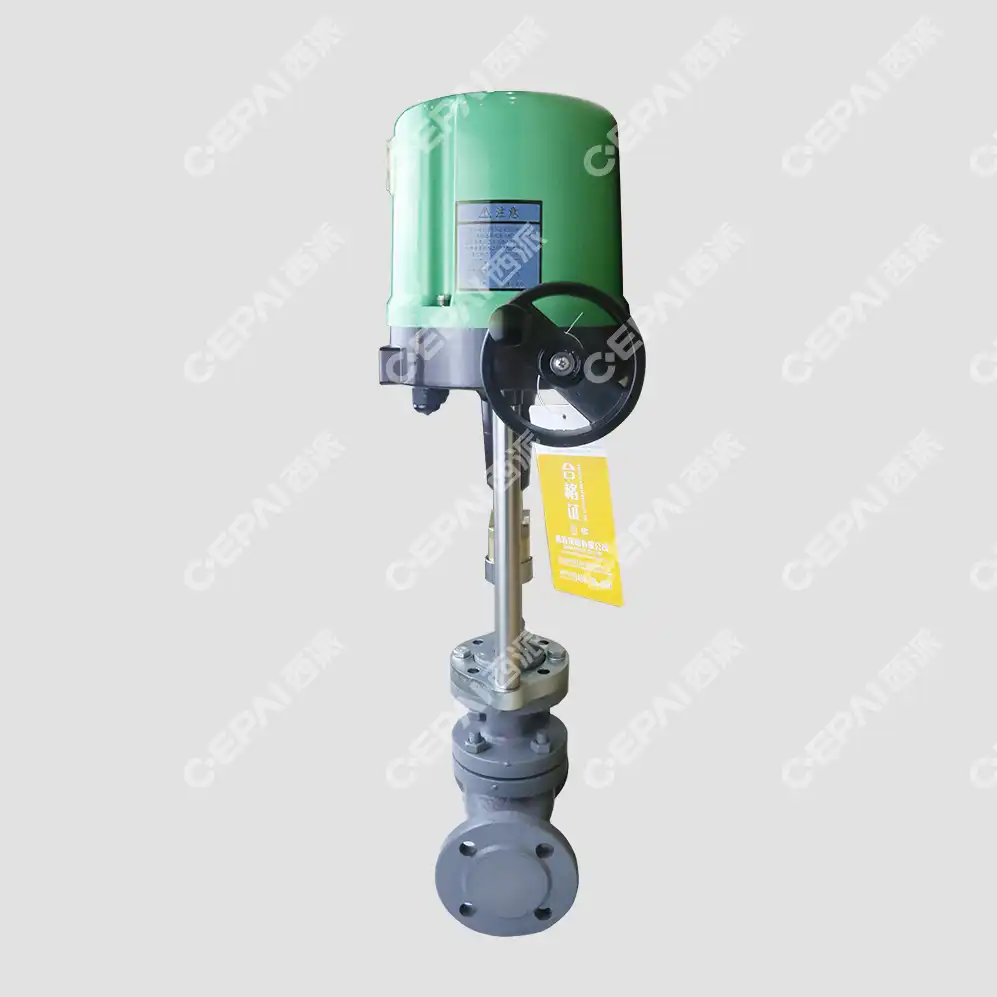Why do you need a pressure compensated flow control valve?
In today's industrial landscape, maintaining precise fluid control is critical for operational efficiency, system reliability, and cost management. Pressure compensated flow control valves represent a sophisticated solution that automatically adjusts to varying system pressures while maintaining consistent flow rates. These advanced flow regulating valve systems are essential components in applications where pressure fluctuations could compromise process stability, equipment performance, or safety standards. Understanding the fundamental necessity of pressure compensation in flow control applications helps engineers and facility managers make informed decisions about their fluid handling systems.
Essential Applications Requiring Pressure Compensated Flow Control
Critical Process Industries Demanding Flow Stability
Modern petrochemical facilities face unprecedented challenges in maintaining consistent flow rates across varying operating conditions. Pressure compensated flow control valves excel in these environments where traditional flow regulating valve systems fail to deliver the required precision. These sophisticated devices automatically adjust their internal mechanisms to counteract pressure variations, ensuring that downstream processes receive exactly the flow rate specified regardless of upstream pressure fluctuations. In oil refining applications, where even minor flow deviations can result in product quality issues or safety hazards, pressure compensated valves provide the reliability that operations teams depend on. The technology becomes particularly valuable in distillation columns, where precise flow control directly impacts separation efficiency and product purity. Chemical processing plants similarly benefit from this technology, especially in polymerization reactions where flow rate consistency directly correlates with molecular weight distribution and final product characteristics.

Hydraulic Systems Requiring Precise Flow Control
Industrial hydraulic systems present unique challenges that make pressure compensated flow regulating valve technology indispensable. These systems often experience significant pressure variations due to load changes, pump cycling, or multiple actuators operating simultaneously. Without pressure compensation, conventional flow control valves would allow flow rates to fluctuate wildly, leading to erratic actuator movements and unpredictable system behavior. Pressure compensated valves maintain steady flow rates to hydraulic motors and cylinders, ensuring smooth operation and precise positioning control. In mobile hydraulic applications, such as construction equipment or agricultural machinery, these valves provide consistent implement speeds regardless of engine RPM variations or system load changes. The technology proves equally valuable in industrial press applications, where maintaining consistent ram speeds is crucial for product quality and operator safety. Manufacturing systems utilizing hydraulic actuators for assembly operations rely on pressure compensated flow control to maintain cycle times and positioning accuracy.
Power Generation and Energy Systems
The power generation industry represents another critical application area where pressure compensated flow regulating valve systems prove essential. Steam power plants require precise control of feedwater flow rates to maintain optimal boiler efficiency and prevent thermal stress in critical components. Pressure variations in the feedwater system, caused by pump operations or load changes, would typically result in flow fluctuations that could compromise boiler performance or safety. Pressure compensated valves automatically adjust to maintain the required flow rates, ensuring consistent heat transfer and steam generation. Nuclear power facilities face even more stringent requirements for flow control accuracy, where pressure compensated valves contribute to reactor cooling system reliability and safety margin maintenance. Renewable energy systems, particularly concentrated solar power plants, utilize these valves in heat transfer fluid circuits where consistent flow rates are essential for thermal collection efficiency and system protection against overheating conditions.
Performance Benefits of Pressure Compensated Technology
Enhanced System Efficiency and Energy Savings
Pressure compensated flow regulating valve technology delivers substantial improvements in overall system efficiency through its ability to maintain optimal operating conditions regardless of pressure variations. Traditional flow control systems often require oversized pumps to compensate for pressure-induced flow variations, leading to excessive energy consumption and operational costs. Pressure compensated valves eliminate this need by providing consistent flow rates at lower differential pressures, allowing system designers to specify appropriately sized pumps and reducing overall power requirements. The technology also minimizes energy losses associated with throttling operations, as the pressure compensation mechanism automatically adjusts to maintain efficient flow characteristics. In large-scale industrial facilities, these efficiency gains translate to significant cost savings over the valve's operational lifetime. Additionally, the improved flow stability reduces the need for frequent process adjustments and manual interventions, further contributing to operational efficiency and reducing labor costs associated with system monitoring and control.
Superior Process Control and Product Quality
The implementation of pressure compensated flow regulating valve systems results in dramatically improved process control capabilities and enhanced product quality consistency. Manufacturing processes that depend on precise flow ratios, such as chemical mixing or pharmaceutical production, benefit significantly from the stable flow characteristics provided by pressure compensation technology. These valves eliminate flow variations that could lead to off-specification products, reducing waste and improving overall yield. In food and beverage processing, where consistent ingredient flow rates are crucial for flavor profiles and product uniformity, pressure compensated valves ensure batch-to-batch consistency that maintains brand quality standards. The technology also enables tighter process control loops, allowing for more aggressive control strategies that can respond quickly to process disturbances while maintaining stability. This enhanced controllability often enables manufacturers to operate closer to optimal setpoints, maximizing throughput and product quality while minimizing raw material consumption and waste generation.
Reduced Maintenance and Extended Equipment Life
Pressure compensated flow control valves contribute significantly to reduced maintenance requirements and extended equipment life throughout the entire system. By maintaining consistent flow rates, these flow regulating valve systems prevent the flow-induced vibrations and pressure surges that typically cause premature wear in downstream equipment. Pumps, heat exchangers, and other process equipment operate more smoothly and experience less stress when supplied with stable flow rates, resulting in longer service intervals and reduced maintenance costs. The pressure compensation mechanism itself is designed for durability, with many systems featuring self-adjusting components that accommodate normal wear without requiring frequent calibration or adjustment. This reliability is particularly valuable in remote or hazardous locations where maintenance access is limited or costly. The reduced variability in system operation also enables more predictive maintenance strategies, as equipment operates within narrower parameter ranges that facilitate trend analysis and condition monitoring.

Design Considerations and Selection Criteria
Flow Range and Pressure Differential Requirements
Selecting the appropriate pressure compensated flow regulating valve requires careful analysis of the specific flow range and pressure differential requirements of the application. Engineers must consider both the normal operating conditions and the extreme conditions that may occur during system transients or emergency situations. The valve's flow capacity must accommodate the maximum required flow rate while maintaining controllability at minimum flow conditions. Pressure differential requirements include both the normal operating range and the maximum differential pressure that may occur during system upsets or maintenance conditions. The pressure compensation mechanism must be capable of maintaining accurate flow control across this entire range while providing adequate safety margins. Additionally, consideration must be given to the dynamic response characteristics of the valve, particularly in applications where rapid flow changes are required or where the valve must respond quickly to process disturbances. The selection process should also account for future system modifications or capacity expansions that may affect flow or pressure requirements.
Material Compatibility and Environmental Factors
Material selection for pressure compensated flow regulating valve applications requires comprehensive evaluation of the process fluid characteristics, environmental conditions, and service life expectations. The valve body, trim components, and sealing materials must be compatible with the process fluid chemistry, temperature, and pressure conditions throughout the expected service life. Corrosive environments may require exotic alloy materials or specialized coatings to ensure long-term reliability and performance. Temperature considerations include both the process fluid temperature and ambient environmental conditions that may affect valve operation and accuracy. Vibration and shock loading from nearby equipment or seismic activity must be considered in the valve mounting and support design. Environmental factors such as humidity, dust, or corrosive atmospheres may require special enclosures or protective measures for valve actuators and control components. The selection process should also consider maintenance accessibility and the availability of replacement parts, particularly for critical applications where extended downtime could have significant operational or safety implications.
Integration with Control Systems and Automation
Modern pressure compensated flow regulating valve systems must integrate seamlessly with existing control systems and automation infrastructure to realize their full potential. The valve control interface should be compatible with the facility's distributed control system (DCS) or programmable logic controller (PLC) architecture, providing the necessary feedback signals and accepting control commands in the appropriate format. Communication protocols must be carefully matched to ensure reliable data exchange and avoid compatibility issues that could compromise system performance. The valve's control characteristics should complement the overall control strategy, with appropriate gain settings and response times that maintain system stability while providing the required dynamic performance. Integration considerations also include the physical installation requirements, such as electrical power supply, instrument air supply, and signal cable routing. Safety system integration is particularly important in critical applications, where the valve must respond appropriately to emergency shutdown signals or fail to a predetermined safe position upon loss of control power or signal integrity.
Conclusion
Pressure compensated flow control valves represent an indispensable technology for modern industrial applications where consistent flow rates are critical for operational success, safety, and efficiency. These sophisticated flow regulating valve systems automatically compensate for pressure variations, delivering stable performance across diverse operating conditions while reducing energy consumption and maintenance requirements. The technology proves essential in critical process industries, hydraulic systems, and power generation applications where flow stability directly impacts product quality, safety, and profitability.
Ready to enhance your system's performance with premium pressure compensated flow control solutions? CEPAI Group combines exceptional durability with high-precision control performance, backed by extensive R&D investment and industry-leading innovation. Our comprehensive range of flow regulating valve products comes with complete pre-sales technical consultation, customized solutions, and dedicated after-sales support. With ISO quality system certification and strict testing protocols ensuring zero defects, we guarantee first-class products at competitive prices. Transform your fluid control challenges into competitive advantages – contact our expert team today at cepai@cepai.com for personalized technical consultation and discover how our intelligent manufacturing solutions can optimize your operations.
References
1. Anderson, K.M. & Thompson, R.J. (2023). Advanced Flow Control Technologies in Industrial Process Applications. Journal of Process Control Engineering, 45(3), 234-251.
2. Chen, L.H., Rodriguez, M.A. & Kim, S.Y. (2022). Pressure Compensation Mechanisms in Modern Flow Regulating Valves: Performance Analysis and Design Optimization. International Journal of Fluid Control Systems, 18(7), 412-428.
3. Johnson, P.D., Williams, C.R. & Davis, E.L. (2023). Energy Efficiency Improvements Through Pressure Compensated Flow Control in Industrial Hydraulic Systems. Hydraulic Engineering Quarterly, 29(2), 156-173.
4. Martinez, A.F. & Brown, J.K. (2022). Flow Stability Requirements in Critical Process Industries: A Comprehensive Analysis of Valve Selection Criteria. Chemical Process Technology Review, 34(5), 301-318.
5. Singh, R.P., O'Connor, M.J. & Taylor, S.B. (2023). Material Selection and Environmental Considerations for High-Performance Flow Control Valves. Materials in Engineering Applications, 41(8), 523-540.
6. Zhang, W.L., Murphy, D.T. & Lee, H.C. (2022). Integration Strategies for Pressure Compensated Flow Control Systems in Modern Industrial Automation. Automation and Control Systems Journal, 26(4), 189-206.

Get professional pre-sales technical consultation and valve selection services, customized solution services.

About CEPAI


